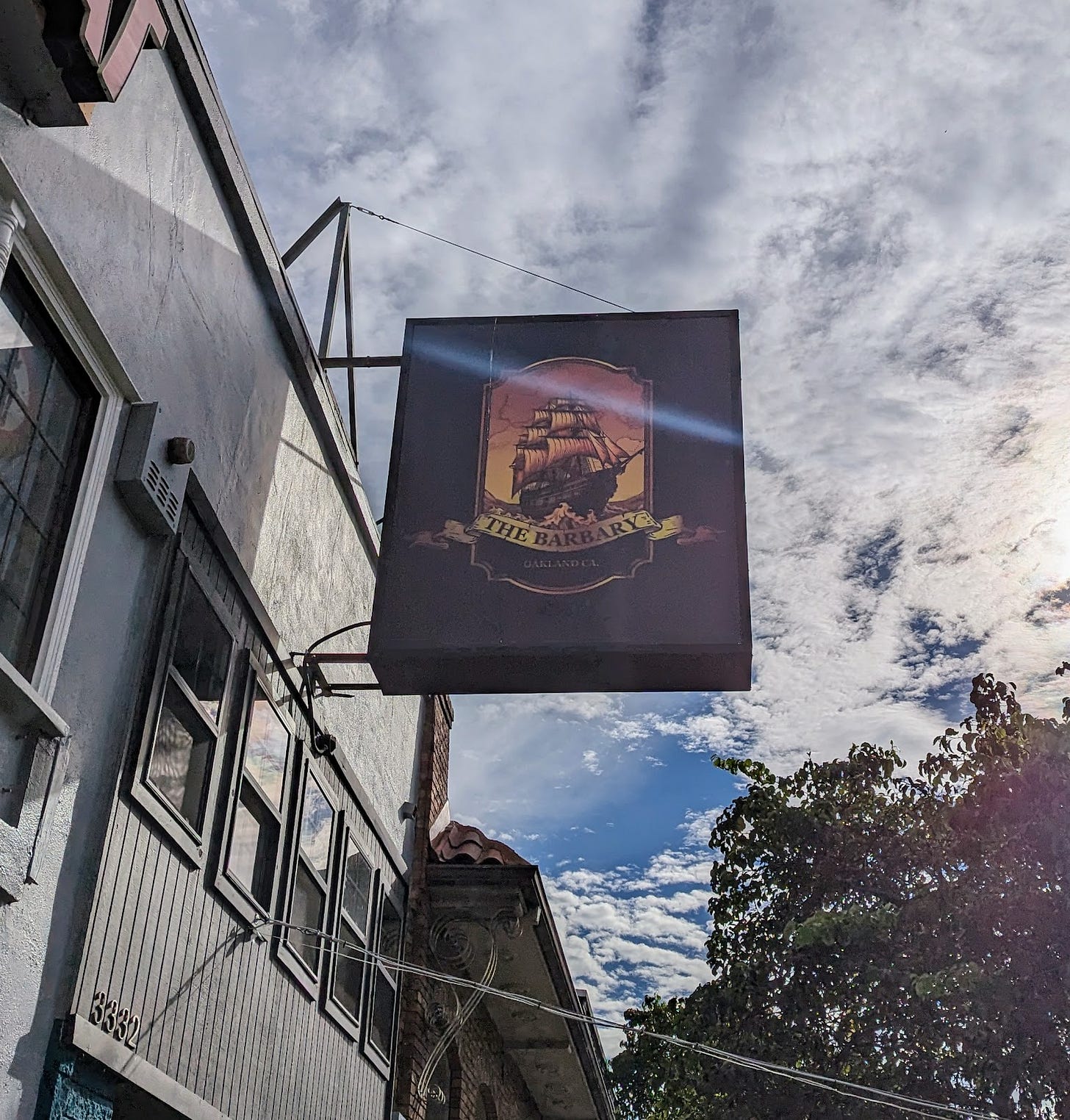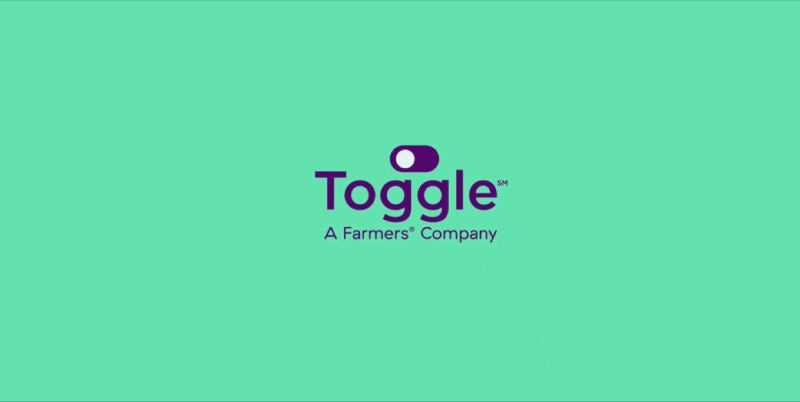In the naming business, a naming brief is a detailed written document that serves as a road map for name development and legal review. (Read more about the naming brief here.) The naming briefs in this newsletter are something else: short reports on names I’ve spotted in the wild or in my reading. Second in a series; read last month's Naming Briefs. Have you come across an interesting company or product name you’d like me to critique? Let me know in a comment.
The Barbary.
This new pirate-tiki bar in my Oakland neighborhood opened in September and does not appear to have a website; I learned about it through a story in the local-news publication Oaklandside. “The bar is inspired by the Barbary Coast—the area of North African coastline along what is today Morocco, Algeria, Tunisia and Libya—historically noted for the Berber pirates who preyed on ships that sailed the Mediterranean from the 16th to the 19th centuries,” wrote reporter Risa Nye. But “Barbary Coast” is also closely associated with a neighborhood across the bay, in San Francisco, that got its name during the Gold Rush, when it was home to a red-light district. The name lives on in San Francisco’s Barbary Coast Trail, and in Barbary Coast, “San Francisco’s premier cannabis dispensary and lounge.” In fact, “Barbary” has such deep roots in San Francisco history that it’s a little odd to see the name in the East Bay. I do admire the clipper-ship logo, and I look forward to someday seeing the bar’s interior. (It’s been closed every time I’ve strolled by.) Still, I can’t help wishing the owners had taken a slightly more whimsical tack and named the joint Bar Bary.
Toggle.
My copyeditor pal Andy Behr emailed to let me know that her car-insurance company, 21st Century, was changing its name to Toggle. That’s quite the pivot, name-style-wise, so naturally I had to investigate. It turns out this is more of a brand expansion than a completely new name: Toggle has been around for at least five years as the name of the renters-insurance arm of Farmers Insurance Company. (Farmers was founded in Los Angeles in 1928; the name derived not from the target market—this was L.A., after all—but from the rural roots of the two founders.) Farmers applied in 2018 for trademark protection of TOGGLE for insurance; other, unrelated entities own TOGGLE trademarks for industrial robots, credit-card services, fertilizers, and other products and services. The friendly-sounding word toggle is a “nautical word of uncertain origin”—it may be related to tug—that was first documented in the 18th century and originally meant “a pin passed through the eye of a rope, strap, or bolt to hold it in place.” Toggle switch (the up-and-down sort) first appeared in the 1930s; by the late 1970s, toggle was being used in computing to refer to a key that alternates between on and off functions. The last sense is most likely what Toggle insurance wants to evoke. Its tagline: “We hit the refresh button on renters insurance.”
Not Your Grandma’s Shower Cap.
I spotted this product name as I was checking out at the ever-wonderful Berkeley Bowl Marketplace. I couldn’t find a website for the parent company, Lemon Lavender, but I did find the shower caps on other vendors’ sites. Honestly? They look exactly like my grandma’s shower caps. (OK, maybe the “satin” fabric is a little nicer.) What caught my attention, of course, was that “Not Your [Close Relative’s] X” formula, which I wrote about twice in 2013. Oldsmobile may have made the formula famous with its 1980s slogan “Not Your Father’s Oldsmobile,” but a 1969 movie tagline was first to market.
Procurify.
How many brand names end in -ify? Way, way, way too many. We can blame Spotify (founded in 2006) for fast-start-ifying the trend, which I wrote about multiple times back in the 2010s and which my colleague Christopher Johnson immortalize-ified in his Wall of Namifying. Today’s case study, Procurify, was founded in Vancouver, BC, 2011, at the peak of -ify madness; it was in the news this week because it procurified a new $50 million investment. Here’s what’s bad about the Procurify name, besides the lazy copycatting: It takes a verb, procure, and adds a verbifying suffix, -ify. Verbs don’t need additional verbifying! What’s more, although “procurement” is standard business jargon, it will never not make me think of pimps.








Here’s a gift article from the Atlantic about the use of + in naming. Right up your alley...
The sign has become inescapable in the world of branding.https://www.theatlantic.com/newsletters/archive/2024/02/why-the-is-everywhere/677345/?gift=MKFTBveuYuEmgTs30zlsSqkmlmyg2iqM7DVqY7Gofs4
There is a women's clothing company in Australia called 'Commonry'. I find it clumsy to say and the 'common' part does not (for me) give the right vibe for a fashion chain, not that I'm ever likely to need to buy anything from them. I couldn't find anything quickly about the origin of the name. Any comments on 'Commonry'?